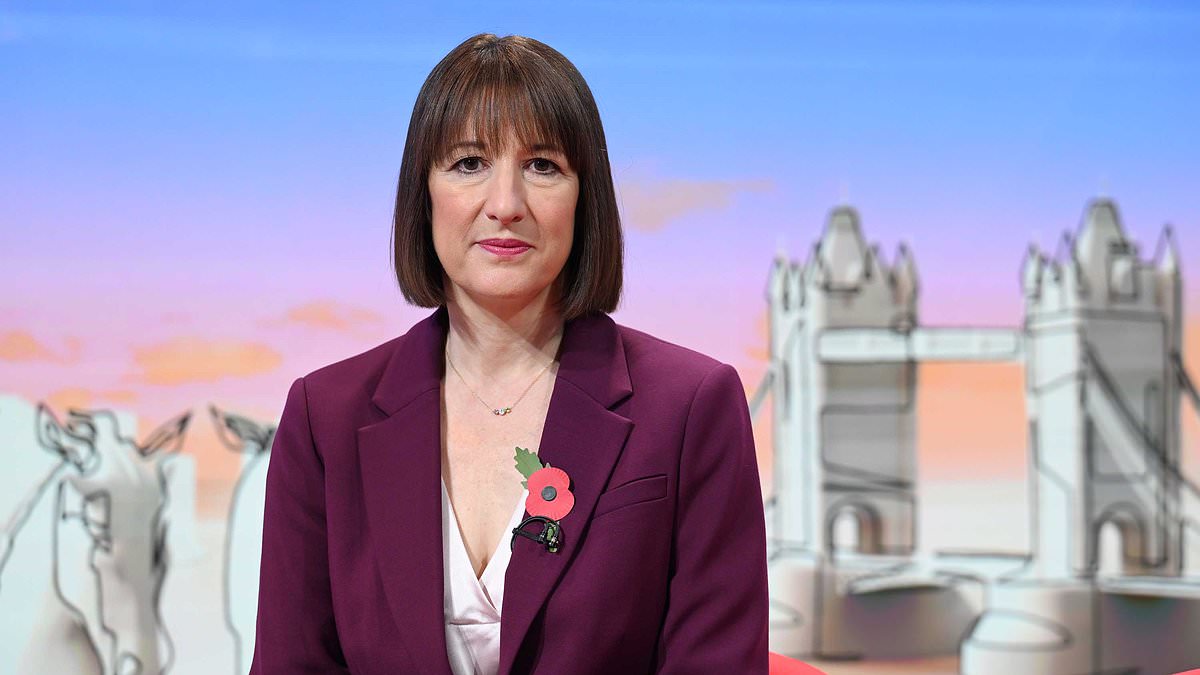Rachel Reeves today admitted she was wrong to say during the election campaign that taxes would not have to rise.
The Chancellor has faced an angry backlash over her commitment in June that the only increases needed were in the Labour manifesto.
In broadcast interviews this morning, Ms Reeves was grilled over how that was compatible with her huge £40billion tax raid in the Budget last week.
She denied that Labour was already having behind-the-scenes discussions about hiking national insurance before the election, arguing that she ‘didn’t know everything’ until Treasury officials showed her the true state of the finances.
However, in worrying signs for Ms Reeves, a poll has found that four in 10 Brits believe the hikes will hit their own finances.
Opinium research showed that the measures are seen as having a negative impact on all groups, from low incomes to pensioners.
Meanwhile, Ms Reeves is scrambling to counter warnings from the Treasury watchdog that the Budget will squeeze the economy.
She said she will reveal plans later this month designed to ‘unlock more private investment to fuel our growth mission’.
Ms Reeves insisted that her plans for economic reform would bring more growth than economists think.
Ms Reeves has faced a backlash for raising employers’ national insurance contributions, capital gains tax and inheritance tax to fund a public sector spending bonanza.
But speaking to the Sunday Times, the Chancellor said she had delivered on a manifesto promise to restore economic stability and was now making growth her ‘number one priority’.
She said: ‘I set out a robust set of fiscal rules within a framework which means we will not borrow for day-to-day spending and we will get debt down as a share of the economy.
‘Now we have fixed the foundations of our economy, I am going for growth.
‘Because we cannot tax and spend our way to prosperity, nor can we tax and spend our way to better public services. Instead, we need economic growth and we need economic reform.’
Ms Reeves is expected to set out a series of reforms to pensions, welfare and industrial strategy in the coming weeks.
Combined with reforms to the planning system to speed up building projects, Labour hopes the changes will be enough to significantly boost investment, productivity and economic growth.
‘In a couple of weeks’ time I will deliver my first Mansion House speech setting out my ambitions for our financial services industry and the next steps on pension reform, which will unlock more private investment to fuel our growth mission,’ she said.
‘We will [also] unveil our plans to get Britain working to tackle the welfare bill. And next year we will launch our new industrial strategy.’
Without higher growth, economists have suggested that the Government will need to find another £9billion after next year in order to avoid cuts to unprotected departments.
Ms Reeves repeated her claim that she should not ‘need’ to raise taxes again following Wednesday’s Budget – a similar position to the one she took before the election.
She said: ‘We have now set a public spending trajectory for the rest of this Parliament.
‘We don’t need to raise more money in tax, so businesses and investors should have confidence that our public finances are now on a sound footing.’
Ms Reeves also challenged the new Conservative leader Kemi Badenoch to say which investments she would oppose if she objected to the Budget.
The Chancellor told the Observer: ‘If Kemi Badenoch opposes this Budget, then she has to tell the country if she opposes investment to cut waiting lists, investment to recruit teachers and investment to build critical infrastructure.
‘Labour has made its choices, now the Tories need to make theirs.’
